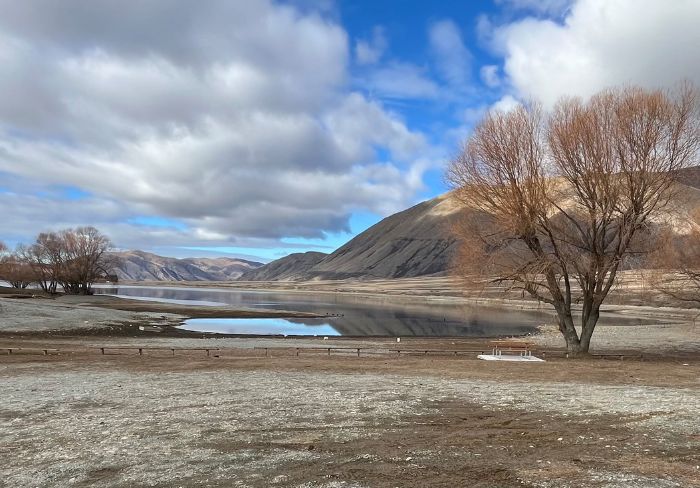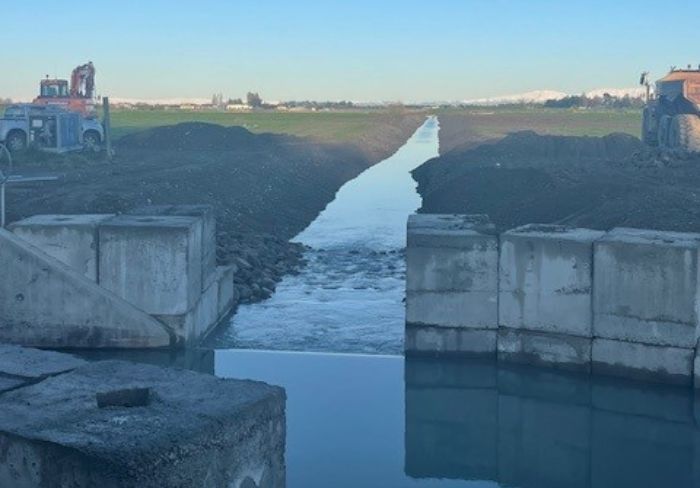There are fears an Ashburton lake could become little more than a puddle if action isn’t taken to save it – but authorities have suggested they may just “let nature take its course”.
Vanessa Wright is pleading with the council to save Lake Camp, in the high country Ōtūwharekai Ashburton Lakes area, as the water level has dropped dramatically over the last few years.
Wright presented a proposal from the Lake Clearwater Hutholders Association to the Ashburton Zone Committee on Tuesday.
The proposal had already been taken to Environment Canterbury (ECan) and the Department of Conservation (DOC).
But, Wright said they had suggested they were “willing to let nature take its course”.
A diversion from the Balmacaan Stream had kept Lake Camp ecologically and recreationally healthy for 56 years, she said.
Fish & Game NZ previously held the resource consent for the stream diversion to top up Lake Camp, but surrendered the consent in 2020.
Aside from spikes following heavy rainfall events in 2021, which scoured out the diversion, and 2022, the lake level has steadily dropped.
“Without the diversion to help, [the lake] can’t fill up.
“It seems nuts that we can’t just put it back in place to simply keep a lake in good health.
“This is our chance to be proactive.”
The lake continues to drain and will be unsafe to use recreationally in summer, she said.
If the lake level does not rise, she fears it will follow surrounding lakes that are close to flipping from clear weed-dominated water to turbid algae-dominated water – which would have a detrimental impact on lake ecosystems.
DOC and ECan had expressed that they were not concerned about the lake level dropping as it wasn’t impacting the lake’s water quality, Wright said.
DOC representative John Benn said the cost of holding the diversion consent is prohibitive, which is why Fish and Game gave it up.
DOC was also “not 100% convinced of the ecological benefits” of the diversion as lakes fluctuate over time, Benn said.
He also outlined consent could be granted, but DOC still had to permit any structures on its land which was judged on a case-by-case basis.
DOC’s stance did not sit well with ECan councillor Ian Mackenzie.
He called out what he saw as a double standard, with organisations suggesting nature take its course at Lake Camp but taking a variety of actions to save other lakes in the Ashburton Lakes area.
“For [Lake Camp] we seem to be very happy to turn our back and walk away from the state of the lake.
“You don’t need to be a water scientist to know that if you cut off the water supply to a puddle, the puddle will eventually stagnate and go manky.”
Zone committee member Clare Buchanan also disagreed with suggestions the lake level isn’t a water quality issue, saying “it will be” as the water level drops.
Wright said the cost of the consent would be small compared to how costly and hard it is to turn a lake around.
“It makes sense to be proactive rather than reactive.”
With ECan and DOC uninterested, the hutholders proposed the district council apply for, and hold, the permits for the Balmaccan Stream diversion, as it aligned with its 30-year plan for Lake Camp and Clearwater.
The zone committee plans to contact the council and Te Runanga Arowhenua, lending its support to the proposal.
The support was pleasing, Wright said, but she remained concerned that as the process dragged on, the lake would continue to drain.
By Jonathan Leask




